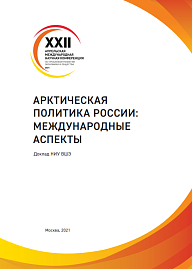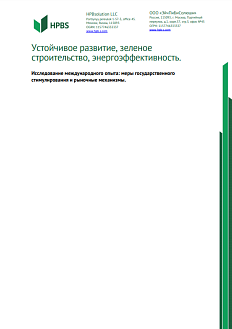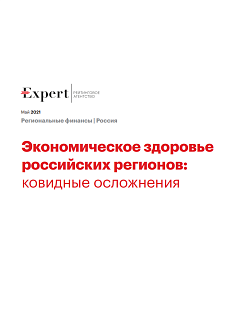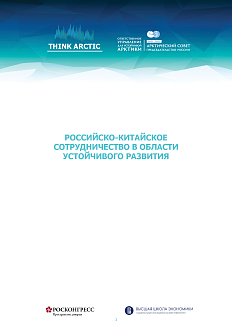The report, prepared by experts of National Research University Higher School of Economics for the XXII April International Academic Conference on Economic and Social Development, discusses the development of the Arctic as a flagship region with an innovative resource and eco-friendly economy, as well as the international priorities of Russia in the Arctic in the light of Russia’s chairmanship in the Arctic Council — key intergovernmental forum of the Arctic countries for cooperation in the region.
The Roscongress Foundation presents the salient points of the publication accompanied by fragments of broadcasts of relevant panel discussions from the business programme of international events held by the Roscongress Foundation.
Climate change opens up new transport routes through the Arctic and new environmental threats.
The main advantages of the region are natural resources and geographical location: the shortest sea route from Asia to Europe runs through the Arctic. However, due to the harsh climate, the region remained on the periphery of the world economy development for a long time. Today, with the acceleration of climate change, the Arctic is being freed from ice, and its natural resources and transport routes are becoming more accessible. At the same time, environmental risks in the Arctic are also increasing. As a result of climate change, permafrost is thawing — its thickness and area are reduced, which decreases the reflectivity of the Earth’s surface and contributes to further «overheating» of the Arctic. This process poses threats to local infrastructure, increases the risk of man-made disasters, intensifies coastal erosion, and enhances the vulnerability of Arctic ecosystems.
Video: https://roscongress.org/sessions/iaf-2019-arktika-okean-vozmozhnostey/search/#00:03:37.856
The strategic interests of the world’s leading powers clash in the Arctic, reducing opportunities for cooperation.
In the current system of international relations, the region is «under the jurisdiction» of the Arctic countries, which include Russia. However, the process of ice melting in the Arctic implies the involvement of other interested countries in economic and transportation projects related to the region, which encourages these states to claim participation in the management of the Arctic. Thus, the European Union and individual European countries, including France and the United Kingdom, have issued in recent years a number of documents aimed at promoting their interests in the Arctic. In 2013, China, Japan, the Republic of Korea, India and Singapore became observers to the Arctic Council. China seeks to expand its global influence by increasing its presence in the Arctic and strengthening cooperation with northern countries. If the development of the Arctic as an economic territory is beneficial for a wide range of countries, then the Arctic States, primarily Russia, bear significant environmental risks from the further development of the Arctic.
In addition, opening up the region removes the natural buffer between the world’s confronting powers. In 2019, 2020 and 2021, the United States published three military Arctic strategies — from the Department of Defense, the Air Force, and the Ground Forces, in which the Arctic was declared one of the priority regions for strengthening the country’s military presence. In USA it is believed that the process of ice melting in the Arctic turns the region into a «corridor of rivalry between great powers», which provides adversary countries (that is, Russia and China) with quick access to American territory.
Traditionally, the range of issues discussed and the flexible format of interaction within the Arctic Council (AC) have been the key to productive cooperation, in which «big politics» has not interfered. However, the growing competition of the leading Arctic Powers and the desire of non-Arctic countries to play a greater role in the region are reducing the potential for interaction in the areas traditional for the Council.
Russia must become a leader in environmental conservation in the Arctic and intensively develop Arctic science.
The «homogenization» of Arctic waters poses a threat to the international legal regime of navigation in the region, which is stipulated in Article 234 («Ice-covered areas») of the UN Convention on the Law of the Sea, the protection of which is one of Russia’s priorities in the Arctic. It is important to emphasize environmental issues and to prioritize the fragility of Arctic ecosystems over the criterion of ice cover.
Due to the rapid climate change in the Arctic, it is necessary to expand the international responsibility of the Arctic States (including the protection of the marine environment). For a scientifically-based argumentation of its position on the international arena, Russia needs to intensify full-scale scientific research on environmental changes in the Arctic, primarily in glaciology (the science of natural ice), oceanology and climatology.
For more information, see the special sections of the Roscongress Foundation Information and Analytical System: Arctic, Regions of Russia, dedicated to regional development; Culture, Environment, Infrastructure Development , dedicated to environmental, cultural and infrastructural issues.






